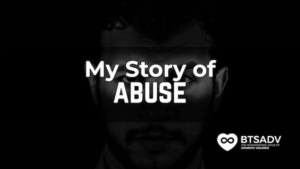By Olivia Pikul
When you think of victims of abuse, what comes to mind? Do you picture a battered woman? A neglected child? A teenage girl? Chances are, you didn’t picture a man. Why is that?
Each year, more than 830,000 men are victims of domestic violence – that is one every 37.8 seconds. In a recent study conducted by the U.S. Department of Justice, data that was collected over a span of nine years found that around 24 percent of people who report domestic violence are men. Twenty-four percent is a significant amount, especially considering men are far less likely to report. To further break down that statistic, approximately one in seven men over the age of 18 have experienced severe physical abuse, 48.8 percent of all men have dealt with psychological aggression, and about 40 percent of men in a gay/bisexual relationship will experience intimate partner violence in their lifetime.
The data is there so why is it so hard to recognize when males are victims of domestic violence?
This bias is due to many factors. We live in a culture that pushes men to be ‘masculine,’ hide emotions, and always put on a brave face. Along with that is the fact that women are taught from a young age that domestic violence is a very real thing that could happen to them. Men are not fortunate enough to receive this same treatment, and many men are not even aware that domestic violence can impact them, as well. We need to battle this by pushing education on what a healthy relationship looks like and what an unhealthy relationship looks like. Although many resources seem to be geared towards women, men are able to take advantage of the same resources that women do.
Speaking up about abuse is difficult for anyone, but as a man, this challenge can be even more difficult due to fear of being perceived as ‘weak’ in a society that emphasizes the importance of ‘strong men.’ The reality is that abuse is more than just physical. It takes a certain amount of emotional abuse to break someone down before they could ever get away with physically hurting them.
Being abused is not a sign of ‘weakness,’ but speaking out about it is a sign of strength.
Take it upon yourself to educate your son, brother, uncle, or friend, about what a healthy relationship looks like and to help prevent them from experiencing life-altering abuse. Teach them that if at any point they become a victim of abuse, speaking up is the strongest thing they can do.
Domestic violence does not discriminate by gender. If you think that you or someone you know could be experiencing domestic violence, please refer to the list of possible signs below.
You might be experiencing domestic violence if your partner:
- Calls you names, insults you or puts you down and makes it out to be a joke,
- Prevents you from going to work or school,
- Stops you from seeing family members or friends,
- Tries to control how you spend money, where you go or what you wear,
- Acts jealous or possessive or constantly accuses you of being unfaithful,
- Gets angry when drinking alcohol or using drugs,
- Tries to control whether you can see a health care provider,
- Threatens you with violence or a weapon,
- Hits, kicks, shoves, slaps, chokes or otherwise hurts you, your children or your pets,
- Forces you to have sex or engage in sexual acts against your will,
- Blames you for his or her violent behavior or tells you that you deserve it.
If you’re gay, bisexual or transgender, you might also be experiencing domestic violence if you’re in a relationship with someone who:
- Tells you that authorities won’t help a gay, bisexual or transgender person,
- Tells you that leaving the relationship means you’re admitting that gay, bisexual or transgender relationships are deviant,
- Threatens to tell friends, family, colleagues or community members your sexual orientation or gender identity,
- Justifies abuse by telling you that you’re not “really” gay, bisexual or transgender,
- Says that men are naturally violent.
If you or someone you know is in an abusive relationship, there is help. You can visit the Break the Silence Against Domestic Violence website at www.breakthesilencedv.org or chat with one of our helpline advocates at 855-287-1777.
========
Share Your Story
Sharing our stories can be incredibly empowering while also helping others connect with survivors who have similar experiences. If you are inspired to share your story with us, submit here. You can choose to remain anonymous.
You can also donate to BTSADV here.


